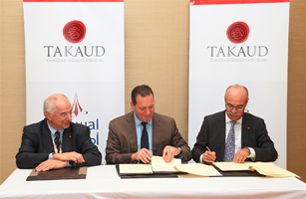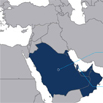Qatar’s stock market to stay strong in Q4
Investors urged to focus on fundamentals
Publisher: Peninsula
Date : 26 September 2015

DOHA: Oil price pressures will continue to be the biggest upside risk for Qatari stock market for the final quarter (Q4, 2015). But there are encouraging indicators that suggest a remarkable market pick-up in Q4, according to a top market watcher. “Price of oil is by far the most important factor to consider when investing in Qatar and the GCC. The correlation is not always direct, and the sensitivity to oil differs from one company to another. For instance, price of oil matters directly for sectors like chemicals and oil services, whose revenues are directly linked to oil”, Afa Boran (pictured), Head of Asset Management, Amwal told The Peninsula.
For banks and many other sectors, Afa said, it matters indirectly, and more so if price of oil were to stay below $60 for several years. If oil eventually recovers and stays above $60 per barrel of Brent, then its impact on indirectly impacted sectors will not be material. This is also the reason why oil is down 50 percent in the last year, but stocks are down on average only 20 percent. Most global oil analysts expect price of oil to remain low in the short/medium term. Once oversupply is taken up by continued growth in demand, analysts expect oil price to be back to a range of $60-70 per barrel of Brent.
Some analysts believe current oversupply is only temporary and expect prices to be as high as $ 80 in the medium term, while a small group of forecasters are expecting continued weakness. This wide range in forecasts are a reflection of constant changes to extraction technology and the difficulty in predicting supply particularly from new shale sources.
“We (Amwal) refrain from taking short term views on the direction of oil prices, but we also share the medium/long term view of continued growth in demand offsetting current oversupply in prices”, Afa said. “When we look at stock valuations, we see that a medium term price of around $60 per barrel of Brent is needed to justify current stock prices. This in a way the price level of oil implied by stock valuation assumptions.” Oil price drop, high valuations and the MSCI changes were the key trends that affected Qatari stocks in this quarter (Q3, 15). After recovering some lost ground in Q2, 2105, oil prices further declined in the Q3. Some sectoral stocks, particularly in the real estate sector, were seen highly valued during the quarter.
The changes in the MSCI index has positively affected the performance of those stocks whose weights were increased, he said. Do stocks look attractive relative to deposit rates and bonds? “Yes, we believe they do, but being selective is key”. “One does not buy everything when shopping at a mall, one also should not buy all stocks blindly. Being selective on valuations and their outlook for profitability is always key, but particularly so at this inflection point for oil-driven economies in the GCC”.
Average valuations in Qatar relative to other emerging markets appear reasonable in our view, but they are not a bargain. There are markets currently valued much cheaper than Qatar. But it is important to note that these countries are much more dependent on high oil prices to balance their budgets. Within Qatar, there are certain stocks that are still quite expensive, while others are more reasonably valued. The key is to focus on fundamentals, and not be swayed by market flows which in a young market like Qatar are driven more by rumours and sentiment than a proper understanding of company earnings.
The Peninsula
-
05 February 2017
 Fahmi Alghussein appointed as new Qatar Chapter Head
Fahmi Alghussein appointed as new Qatar Chapter Head
Read more -
10 October 2016
 Trump factor to impact GCC market
Trump factor to impact GCC market
Read more -
9 October 2016
 Amwal and Takaud in deal to debut pension products...
Amwal and Takaud in deal to debut pension products...
Read more -
7 November 2016
 Amwal appoints Talal Samhouri as Head of Asset Management
Amwal appoints Talal Samhouri as Head of Asset Management
Read more -
3 November 2016
 Four Qataris ranked in Middle East magazine’s
Four Qataris ranked in Middle East magazine’s
Read more -
19 October 2016
 New Takaud And Amwal Partnership Expands
New Takaud And Amwal Partnership Expands
Read more -
01 March 2016
 A top down analysis of the real estate market Factors...
A top down analysis of the real estate market Factors...
Read more -
11 November 2015
 Amwal launches GCC fund with German firm
Amwal launches GCC fund with German firm
Read more -
09 March 2015
 Doha Bank plans to launch ETF on QE
Doha Bank plans to launch ETF on QE
Read more









